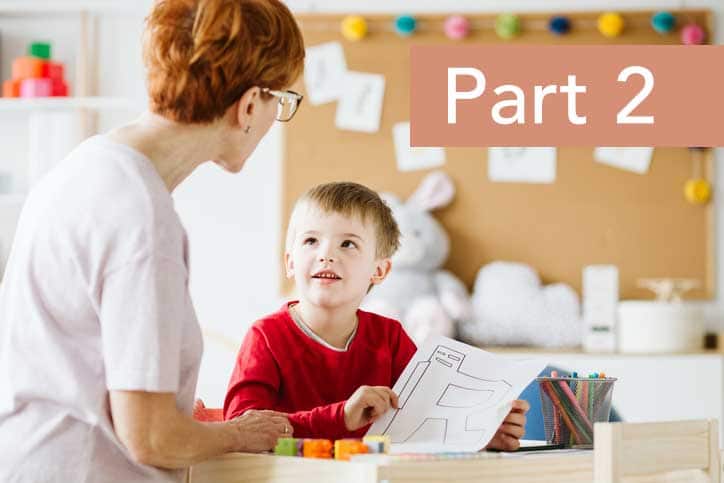In our autism FAQs series, we’ve already discussed Autism Causes and Symptoms. Now we’re going to look at how autism is diagnosed, how to treat autism, and how to cure autism (if applicable). CNLD Testing & Therapy provides comprehensive autism testing and autism treatment. We work with adolescents, teens and adults, as well as families living with autism.
How Is Autism Diagnosed?
Parents and caretakers may notice signs of autism early on, such as delayed speech, minimal eye contact, and seemingly unprovoked tantrums. However, most children are not diagnosed until around 18 months to 3 years of age.
There is no blood test for autism, and the symptoms of autism overlap other conditions. This can make diagnosis tricky. Autism testing involves a comprehensive evaluation to determine if a child has autism spectrum disorder (ASD) or if there is a different underlying condition at work. During a professional autism evaluation, a neuropsychologist will monitor a child’s behaviors, mannerisms, communication skills, and other factors. The neuropsychologist may also interview the parents or caregivers to get a full picture of the child’s struggles.
If the child is on the spectrum, there will be an autism diagnosis in writing. This can be used for academic accommodations and treatment moving forward. If the child does not have autism, the neuropsychologist may suggest additional testing to provide a diagnosis.
Does Autism Testing Identify Where a Child Is on the Spectrum?
Autism is a spectrum disorder, but there isn’t a linear scale that a child falls on. In other words, there’s not such thing as being “more” autistic or “less” autistic. Each person has a unique set of strengths, abilities, difficulties and areas for improvement.
At CNLD Testing & Therapy, we put a heavy focus on identifying each person’s strengths. These are the tools that can help someone overcome struggles in their day-to-day life, whether it be issues with autism or another condition entirely. We also guide families through the process after an autism diagnosis. This is the first step in a lifelong journey, and we’re there to help every step of the way.
Is Autism on the Rise?
Autism diagnoses are on the rise, that doesn’t mean the condition is more prevalent. There have been many advancements in the diagnostic process over the last decade, allowing experts to make more accurate and earlier diagnoses.
The increase in autism awareness has also led more people to get tested, including adults who were never diagnosed as children. It looks like cases of autism are increasing, but it is actually just an increase in testing.
Are Autism and Asperger’s Syndrome the Same Thing?
Asperger’s syndrome was once the diagnosis for “high-functioning autism.” It was used to distinguish someone with mild autism symptoms. In 2013, Asperger’s was grouped with other conditions under the term autism spectrum disorder (ASD).
How to Treat Autism – Can Autism Be Cured?
There is no cure for autism at this time, but there are many treatments available. Most children and teens with autism can benefit from executive functions coaching, which helps them develop fundamental life skills. Executive function coaching focuses on:
- Time management
- Self-motivation and emotional awareness
- Test-taking and memorization strategies
- Strategic thinking
- Setting goals and sticking with plans
Another form of treatment is autism counseling, where a person meets with a therapist to discuss challenges in their life and find personalized solutions to address them. For instance, if the person feels overwhelmed in crowded spaces, the therapist may recommend wearing headphones to reduce the noise or using healthy self-soothing techniques.
Families can attend therapy together to learn how to be a positive support system for a loved one with ASD. This is not always an easy process, but family counseling also provides a platform for judgement-free sharing. If a family member is struggling with the adjustment, he or she can learn coping strategies to overcome stress.
Finally, there are academic accommodations to help children, teens and adults with autism. CNLD Testing & Therapy provides educational advocacy services, which means we can guide you through the process of getting an IEP, 504 Plan or similar support. Contact us at (734) 994-9466 to learn more about autism testing, treatment and therapy.


